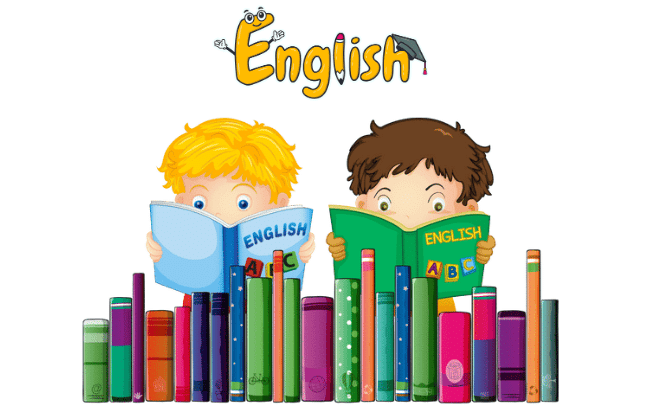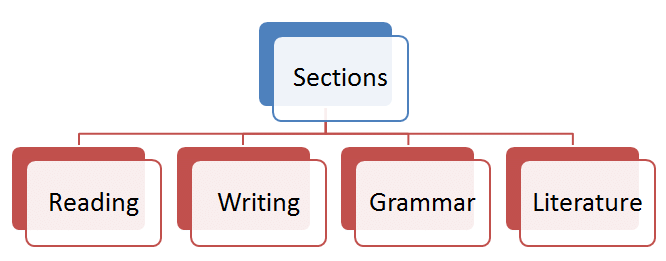How to Prepare for Class 6 English: Tips & Tricks for English | How To Study For Class 6 PDF Download
| Table of contents |

|
| 1. Read your NCERT Textbooks Thoroughly |

|
| 2. Practice a lot |

|
| 3. Solve Previous Year Papers |

|
| 4. Section-wise Preparation Tips |

|
English might sometimes seem less exciting compared to subjects like math or science, but it plays a crucial role in our daily lives and future success. Learning English well can open up many opportunities, from better communication to understanding the world through books and media. Though it might seem challenging, with the right approach, studying English can be engaging and fun.
In Class 6, we'll explore different parts of the English language, such as grammar, vocabulary, reading, and writing. Each section helps us build strong language skills that are important for both school and life.
Let's dive in and discover how mastering English can be an exciting adventure!

To help you, here are a few tips to follow while preparing for Class 6 English:
1. Read your NCERT Textbooks Thoroughly
- To do well in English, especially in the Literature section, start by reading your NCERT textbooks carefully. These books are important because they match what you'll be tested on in the CBSE exams.
- Make sure to read each chapter at least once and answer all the questions at the end.
- Also, use NCERT Solutions, which provide the answers to these questions, to help you understand the material better. Following these steps will help you be ready for your exams and understand English literature more clearly.
There is one NCERT book for Class 6 English: English for Class 6 (Poorvi)
NCERT Textbooks and Solutions
Unit 1: Fables and Folk Tales
Chapter 1: A Bottle of Dew
Chapter 2: The Raven and the Fox
Chapter 3: Rama to the Rescue
Unit 2: Friendship
Chapter 4: The Unlikely Best Friends
Chapter 5: A Friend’s Prayer
Chapter 6: The Chair
Unit 3: Nurturing Nature
Chapter 7: Neem Baba
Chapter 8: What a Bird Thought
Chapter 9: Spices that Heal Us
Unit 4: Sports and Wellness
Chapter 10: Change of Heart
Chapter 11: The Winner
Chapter 12: Yoga—A Way of Life
Unit 5: Culture and Tradition
Chapter 13: Hamara Bharat—Incredible India!
Chapter 14: The Kites
Chapter 15: Ila Sachani: Embroidering Dreams with her Feet
- NCERT Textbook: Ila Sachani: Embroidering Dreams with her Feet
- NCERT Solutions: Ila Sachani: Embroidering Dreams with her Feet
Chapter 16: National War Memorial
2. Practice a lot
To excel in every section of English—whether it’s Reading, Writing, Grammar, or Literature—you need a lot of practice. Writing out answers helps you spot and fix grammatical and spelling mistakes. Remember, English isn’t something you can master in a day. The best way to get better is by practising regularly through writing, reading, listening, and speaking.
To talk about Literature in particular, here’s how we can support your practice through EduRev:
- Worksheets: To work on different exercises.
- Short and Long Answer Questions: To improve your ability to express your ideas.
- Extract-Based Questions: To deepen your understanding of texts.
- Summaries: To help with comprehension and writing skills.
- Important Questions: To focus on key topics that may appear in exams.
Using these resources will help you build your English skills effectively.
3. Solve Previous Year Papers
- Looking at previous years' question papers is a great way to understand how the final exam will be structured. By solving these papers, you can identify which areas you’re strong in and which you need to work on.
- Practising with past papers or sample papers helps you get used to the types of questions you’ll face and teaches you how to manage your time during the exam.

4. Section-wise Preparation Tips

(a) Reading Comprehension Section
- The reading section features one or two passages with a set of questions based on them. To do well, you need to carefully read the passages and answer the questions.
- This section tests how well you can read attentively. Passages might come from books, newspapers, journals, or other sources and can cover a variety of topics. Being an avid reader can be a real advantage here.
- Improving your command of English takes time and isn’t just about memorization. Developing a habit of readingwidely can help you score better. Time can be a challenge during exams, so here are some tips to strengthen your skills:
- Pay special attention to words with similar meanings.
- Focus on details to understand the main points of the passage.
- Look for the hidden message or theme in each passage, as it helps in understanding the text better.
(b) Writing Section
- The writing section usually has two or three parts and focuses on evaluating your creativity, format, and style. It includes tasks like notice writing, report writing, and essays.
- To excel in this section, keep these tips in mind:
- Follow the correct format, as it can earn you marks.
- Use short, clear sentences.
- Write in an active voice rather than a passive one.
- Revise your work to ensure clarity.
(c) Grammar
Break Down Sentences: Start by breaking sentences into smaller parts. Identify the subject, verb, and object. This will help you understand how each part works together.
Understand Basic Rules: Focus on learning basic grammar rules, such as subject-verb agreement, proper use of tenses, and sentence structure. Understanding these rules is crucial for forming correct sentences.
Practice Regularly: Practice grammar exercises regularly. The more you practice, the more familiar you’ll become with different grammar rules and their applications.
Read Actively: Read a variety of texts, including stories, articles, and essays. Pay attention to how sentences are structured and how grammar rules are applied in different contexts.
Write Often: Write regularly, whether it’s short paragraphs, essays, or even diary entries. Applying grammar rules in your writing helps reinforce your understanding.
Explain to Others: Try to explain grammar rules to a friend or family member. Teaching others can help you clarify your own understanding and reinforce what you’ve learned.
Review and Revise: Regularly review what you’ve learned and revise any areas where you find difficulties. Continuous revision helps solidify your understanding.
(d) Literature
When studying literature, approach it with the mindset that it's a reflection of life, allowing room for debate, different perspectives, and creative engagement. To do well, you need a deep understanding of the text and should read it with curiosity and an open mind.
The literature section usually has two parts: one with objective questions (like reference to context) and another with subjective questions (based on your opinion).
- For the objective part, make sure you know your text well, focusing on important sections like key conversations or significant events.
- When answering subjective questions, use your creativity while backing up your answers with specific references from the text.
Understand the Text Deeply: Read your prescribed text thoroughly. Pay attention to important conversations, events, and character interactions.
Focus on Key Sections: Identify and review crucial parts of the text, such as significant dialogues, speeches, or pivotal moments, as these are often the focus of reference to context questions.
Develop Your Creative Skills: For subjective questions, use your creativity to express your thoughts, but always support your answers with examples from the text.
Practice Analysis: Try analyzing different aspects of the text, including themes, character development, and plot structure. This will help you answer both objective and subjective questions effectively.
Take Notes: While reading, make notes of important points and passages. These notes will be helpful for quick revisions and for answering references to context questions.
Engage with the Text: Approach the text with curiosity. Ask questions about the characters’ motivations, the author’s intentions, and the underlying themes.
Review Model Answers: Look at sample answers and previous year’s questions to understand the kind of responses expected. This will give you an idea of how to structure your answers.
Similarly, Prepare For Other Subjects Of Class 6
- How to prepare for Social Science for Class 6?
- How to prepare for Science for Class 6?
- How to prepare for Math for Class 6?
- How to prepare for Hindi for Class 6?
Other Subjects of Class 6
1. Maths for Class 6 (Ganita Prakash) - New NCERT
2. Sanskrit for class 6 (दीपकम्) - New NCERT
3. Science for Class 6 (Curiosity) - New NCERT
4. Social Studies for Class 6 - New NCERT
5. Hindi for Class 6 (Malhar) - New NCERT
|
1 videos|13 docs
|
FAQs on How to Prepare for Class 6 English: Tips & Tricks for English - How To Study For Class 6
| 1. How can I improve my English language skills for Class 6 exams? |  |
| 2. What are some effective study strategies for preparing for Class 6 English exams? |  |
| 3. How important is it to solve previous year papers for Class 6 English exams? |  |
| 4. What is the significance of section-wise preparation tips for Class 6 English exams? |  |
















